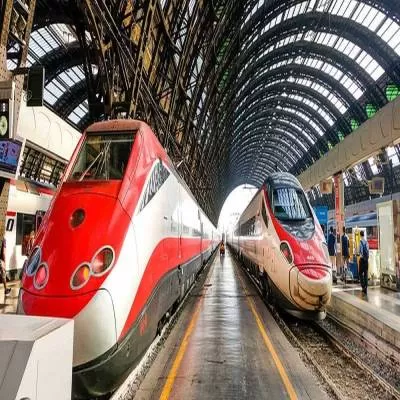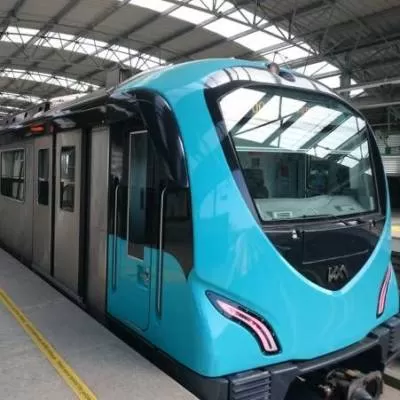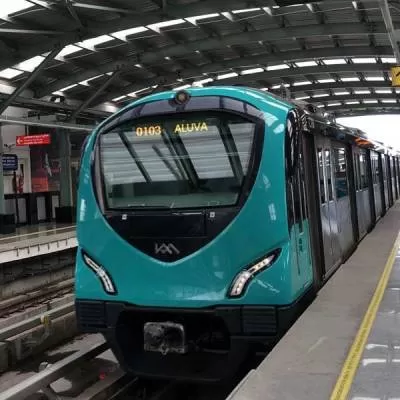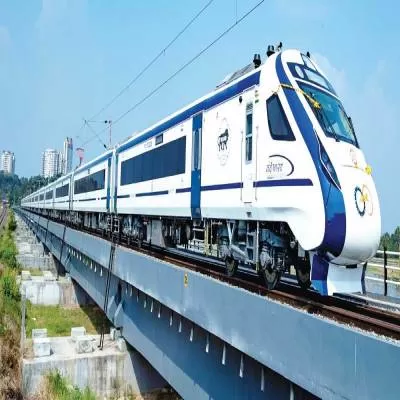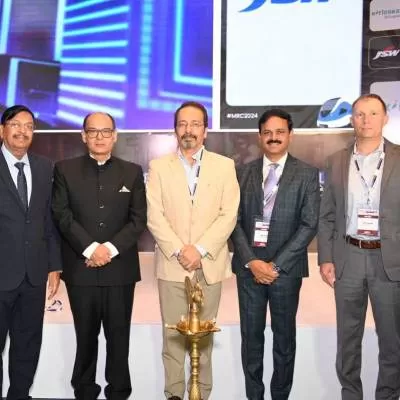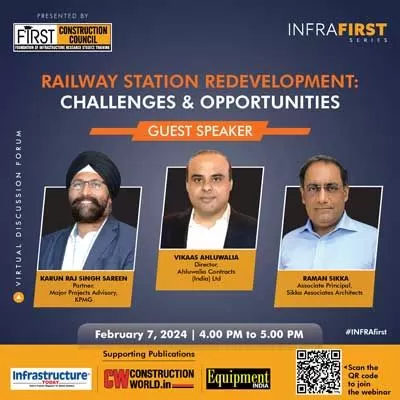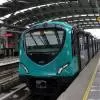- Home
- Infrastructure Transport
- RAILWAYS & METRO RAIL
- 3rd India Rail Conference, 2011
3rd India Rail Conference, 2011
Venue : The Grand, New Delhi
Organiser : ASAPP Conferences
Organised by ASAPP Conferences, the event echoed the need for change in the Railways’ approach to PPP.
Power shortfall for consumers, often impacting industrial output, is often due to transportation problems. So, while shortage of coal is routinely blamed for the power generation gap in the country, shortfall in rail wagon supply is equally the culprit.
Inaugurating the conference, Union Minister of State for Railways, Bharatsinh Solanki appealed to the industry to participate and recommend viable ways to operate.
Logistics issues
This year’s theme for the annual India Rail conference, ‘Railways Vision 2020: Supply Chain Management and Opp-ortunities in India’s Rail Infrastructure’, revolved around issues and opportunities in rail logistics.
By 2017, Coal India’s demand alone will be 241 rakes per day, whereas the augmented capacity from the Railways will only supply 180. ML Gupta, General Manager, Coal India, said that his affiliate corporations called for exclusive rakes for coal on a charged basis. He lamented that the frequent “critical generation problems” in the power sector arise because enough coal can’t be transported.
Rajiv Mehta, Executive President, Ultratech Cement, said cement output will grow exponentially over the next 40 years, and 2050 looks worrisome given the continued lack of understanding of viability issues among rail logistics policymakers. “Processes are important, he said, “but process methodology is more important.” He recommended “both quantitative as well as qualitative measurements of performance.”
Industries that use both road and rail logistics say the opportunity for rail is huge and untapped. Pankaj Joshi, Head-Supply Chain, Auto Motors, Mahindra Logistics, said inbound has great potential in the automotive industry, and since the growth of road logistics has not kept pace with industrial demands, there is a window of opportunity for railways to recover some of the business lost to roads.
Ex-Chairman of the Indian Railway Board, KC Jena, who chaired the conference, said lost opportunities also plagued the Railways because of wrong decisions. He said projection of returns should be made priority and lack of viable leasing options and incentives to attract clients under new, but yet-to-take-off, schemes such as Automobile Freight Train Operator (AFTO) continued to indicate that clarity, confidence and commitment were still needed especially for projects under PPP.
“The Railways need to recognise market norms, not licence norms,” said Manish Puri of Pivot Consultants, who specialise in railways.
Krishnapatnam Port CEO Anil Yendluri pointed out practical issues including the failure to finalise the O&M between South Central Railway and Krishnapatnam Rail Corporation (KRCL) even after two years, despite returns of almost Rs 670 crore from the connection.
Even within non-PPP projects, the “L1-L2” culture that pervades the infrastructure industries overall should be shelved in favour of a cost-of-ownership model, urged Sunil Bahl, Saertex India.
Raghu Dayal, ex-MD, Concor; Vivek Srivastava, CAO, FOIS, Indian Railways; PN Shukla, Director, Operations & BD, Dedicated Freight Corridor Corporation of India (DFCCI) were among the prominent speakers.
Date : May 19, 2011Venue : The Grand, New DelhiOrganiser : ASAPP ConferencesOrganised by ASAPP Conferences, the event echoed the need for change in the Railways’ approach to PPP.Power shortfall for consumers, often impacting industrial output, is often due to transportation problems. So, while shortage of coal is routinely blamed for the power generation gap in the country, shortfall in rail wagon supply is equally the culprit.Inaugurating the conference, Union Minister of State for Railways, Bharatsinh Solanki appealed to the industry to participate and recommend viable ways to operate. Logistics issuesThis year’s theme for the annual India Rail conference, ‘Railways Vision 2020: Supply Chain Management and Opp-ortunities in India’s Rail Infrastructure’, revolved around issues and opportunities in rail logistics.By 2017, Coal India’s demand alone will be 241 rakes per day, whereas the augmented capacity from the Railways will only supply 180. ML Gupta, General Manager, Coal India, said that his affiliate corporations called for exclusive rakes for coal on a charged basis. He lamented that the frequent “critical generation problems” in the power sector arise because enough coal can’t be transported.Rajiv Mehta, Executive President, Ultratech Cement, said cement output will grow exponentially over the next 40 years, and 2050 looks worrisome given the continued lack of understanding of viability issues among rail logistics policymakers. “Processes are important, he said, “but process methodology is more important.” He recommended “both quantitative as well as qualitative measurements of performance.”Industries that use both road and rail logistics say the opportunity for rail is huge and untapped. Pankaj Joshi, Head-Supply Chain, Auto Motors, Mahindra Logistics, said inbound has great potential in the automotive industry, and since the growth of road logistics has not kept pace with industrial demands, there is a window of opportunity for railways to recover some of the business lost to roads.Ex-Chairman of the Indian Railway Board, KC Jena, who chaired the conference, said lost opportunities also plagued the Railways because of wrong decisions. He said projection of returns should be made priority and lack of viable leasing options and incentives to attract clients under new, but yet-to-take-off, schemes such as Automobile Freight Train Operator (AFTO) continued to indicate that clarity, confidence and commitment were still needed especially for projects under PPP. “The Railways need to recognise market norms, not licence norms,” said Manish Puri of Pivot Consultants, who specialise in railways.Krishnapatnam Port CEO Anil Yendluri pointed out practical issues including the failure to finalise the O&M between South Central Railway and Krishnapatnam Rail Corporation (KRCL) even after two years, despite returns of almost Rs 670 crore from the connection.Even within non-PPP projects, the “L1-L2” culture that pervades the infrastructure industries overall should be shelved in favour of a cost-of-ownership model, urged Sunil Bahl, Saertex India.Raghu Dayal, ex-MD, Concor; Vivek Srivastava, CAO, FOIS, Indian Railways; PN Shukla, Director, Operations & BD, Dedicated Freight Corridor Corporation of India (DFCCI) were among the prominent speakers.


